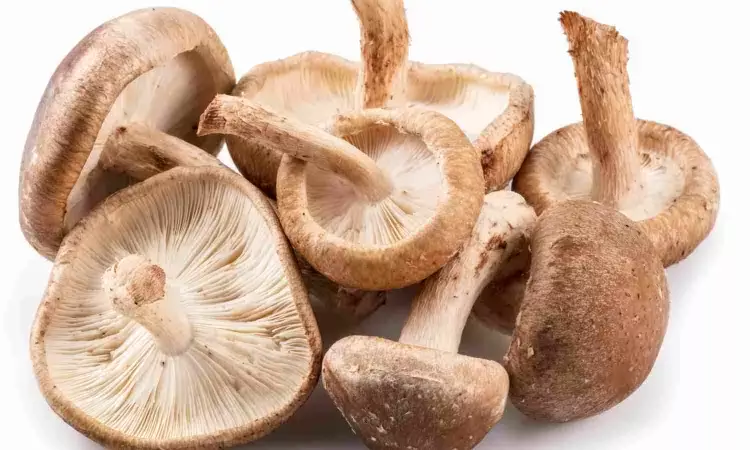- Home
- Medical news & Guidelines
- Anesthesiology
- Cardiology and CTVS
- Critical Care
- Dentistry
- Dermatology
- Diabetes and Endocrinology
- ENT
- Gastroenterology
- Medicine
- Nephrology
- Neurology
- Obstretics-Gynaecology
- Oncology
- Ophthalmology
- Orthopaedics
- Pediatrics-Neonatology
- Psychiatry
- Pulmonology
- Radiology
- Surgery
- Urology
- Laboratory Medicine
- Diet
- Nursing
- Paramedical
- Physiotherapy
- Health news
- Fact Check
- Bone Health Fact Check
- Brain Health Fact Check
- Cancer Related Fact Check
- Child Care Fact Check
- Dental and oral health fact check
- Diabetes and metabolic health fact check
- Diet and Nutrition Fact Check
- Eye and ENT Care Fact Check
- Fitness fact check
- Gut health fact check
- Heart health fact check
- Kidney health fact check
- Medical education fact check
- Men's health fact check
- Respiratory fact check
- Skin and hair care fact check
- Vaccine and Immunization fact check
- Women's health fact check
- AYUSH
- State News
- Andaman and Nicobar Islands
- Andhra Pradesh
- Arunachal Pradesh
- Assam
- Bihar
- Chandigarh
- Chattisgarh
- Dadra and Nagar Haveli
- Daman and Diu
- Delhi
- Goa
- Gujarat
- Haryana
- Himachal Pradesh
- Jammu & Kashmir
- Jharkhand
- Karnataka
- Kerala
- Ladakh
- Lakshadweep
- Madhya Pradesh
- Maharashtra
- Manipur
- Meghalaya
- Mizoram
- Nagaland
- Odisha
- Puducherry
- Punjab
- Rajasthan
- Sikkim
- Tamil Nadu
- Telangana
- Tripura
- Uttar Pradesh
- Uttrakhand
- West Bengal
- Medical Education
- Industry
Preclinical support for using psychedelics to treat alcohol use disorders

A psychedelic found in mushrooms is emerging as a potential treatment for alcohol use disorders. This possibility is due to a compound the body converts the psychedelic into called psilocin, but psilocin’s mechanisms remain unclear. Researchers, led by Sarah Magee and Melissa Herman at University of North Carolina at Chapel Hill, explored whether psilocin targets neurons in the central amygdala involved in emotional processing and stress to alter alcohol use in their JNeurosci paper. Herman emphasizes that preclinical work like this is necessary for filling gaps in knowledge about drug mechanisms, especially in the field of psychedelic research.
Focusing on female mice because they drink more alcohol than male mice, the researchers discovered that psilocin dampened the activity of these neurons following long-term alcohol exposure. This decrease in activity was associated with less alcohol drinking during drug exposure, though drinking was restored in later sessions. These observations also occurred in mice with less severe alcohol exposure, supporting clinical work showing that psychedelics may help improve issues with emotional processing and stress across a range of psychiatric disorders.
According to the researchers, these findings may shape interpretations of clinical studies on psychedelic treatments. Elaborating on their findings, says Herman, “It makes sense that dampening this neuron population reduces drinking because increased activity in these neurons is associated with alcohol use disorders. These neurons also play a role in depression and anxiety, which psychedelics are also showing promise at treating, so our work provides some mechanistic insight in those contexts, too.”
Reference: Sarah N. Magee, Allison C. Sereno, Maria Echeveste-Sanchez, Elizabeth G. Shannon, Abir Mohsin, Sarah E. Mott, Sara P. Faccidomo, Clyde W. Hodge and Melissa A. Herman; Preclinical support for using psychedelics to treat alcohol use disorders; Society for Neuroscience; Journal: JNeurosci; DOI 10.1523/JNEUROSCI.0652-25.2025
Dr Kamal Kant Kohli-MBBS, DTCD- a chest specialist with more than 30 years of practice and a flair for writing clinical articles, Dr Kamal Kant Kohli joined Medical Dialogues as a Chief Editor of Medical News. Besides writing articles, as an editor, he proofreads and verifies all the medical content published on Medical Dialogues including those coming from journals, studies,medical conferences,guidelines etc. Email: drkohli@medicaldialogues.in. Contact no. 011-43720751


